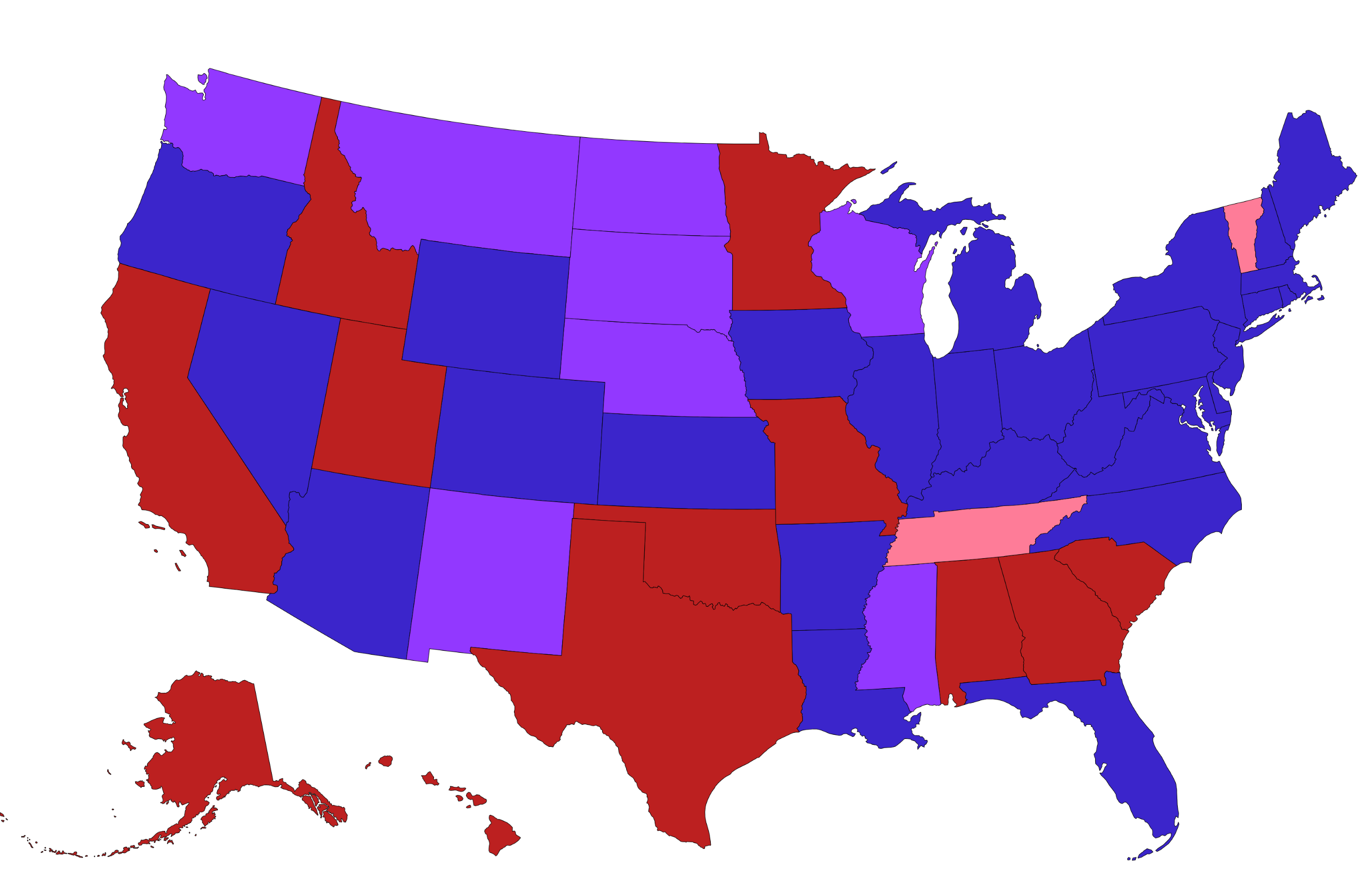Gambling
Map Shows States Where Sports Gambling is Legal

Sports Gambling has transformed from a prohibited activity to a multi-billion dollar American pastime, but as Newsweek‘s map shows, some states have yet to legalize the practice.
In 2018, the U.S. Supreme Court declared a federal ban on sports gambling unconstitutional, overturning a 1992 act which effectively banned the practice nationwide, and allowing each state to determine its own laws on betting.
Drawing on data from the American Gaming Association and Forbes Betting, Newsweek created a map showcasing the states in which sports gambling is currently legal, and the range of regulations covering the practice.
There are currently 38 states, as well as the District of Columbia, which permit some kind of sports betting.
Eight of these states have retail-only restrictions, meaning gamblers are only able to place their wagers while at licensed locations, while a further two—Tennessee and Vermont—only permit online gambling.
The remaining states have yet to allow any form of sports gambling, though efforts are underway to change this.
In Texas, all forms of gambling are prohibited under the state’s penal code, other than in the land-based casinos operated by Native Americans and certain slot machine establishments.
While overturning this would demand an amendment to the state constitution, requiring two-thirds support in both the state House and Senate, there is still significant support for a law change in 2025, with lobbying efforts led by the casino and resort company Las Vegas Sands.
Newsweek spoke with Daniel Grabher, founder and CEO of GlobalBet, about the regulatory differences among U.S. states when it comes to sports gambling.
“Some of the still unregulated States have a more conservative political climate, where gambling in general is viewed negatively,” Grabher said. “Lawmakers in these states may be hesitant to pass legislation that expands gambling—and makes it visible through legal advertising.”
He also cited religion as a potential influence on gambling regulations. Utah is a prime example of this, given that a significant share of its population belong to the Church of Jesus Christ of Latter-day Saints, which considers gambling a “moral wrong” and prohibits games of chance of any kind.

Kevin C. Cox/Getty Images
However, recent data suggests that the legalization of sports gambling may not have been a net gain for the American economy.
The rapid growth of legal betting since the 2018 Supreme Court ruling has brought with it a series of negative impacts, including the onset of what the Washington Post termed “a culture of addiction.”
A recent paper from researchers at UCLA and the University of Southern California looked into the financial toll of the 2018 decision on Americans’ finances.
Researchers found that the average credit scores in states that legalize sports gambling declined by about 0.3 percent in the four years after legalization.
The issue is compounded in states which allow mobile gambling, which saw a roughly 28 percent increase in bankruptcy likelihood and an 8 percent increase in debt collection amounts in the two years following legalization.
However, even in the states which have yet to legalize sports gambling, Grabher claims that the “lax enforcement” of restrictions means that online bets remain common.
In 2022, the American Gaming Association estimated that Americans wagered over $63.8 billion in unregulated sports bets in 2022, costing state governments around $700 million in lost tax revenue.
“The internet, by and large, remains open and is free, which means that despite the knowledge of the activity being illegal, the availability of these platforms encourages participation,” Grabher said, arguing that an unregulated market would open up Americans to scams and fraud, with no guarantees of payouts or safeguards against gambling addiction.
Do you have a story we should be covering? Do you have any questions about this article? Contact LiveNews@newsweek.com.





/cdn.vox-cdn.com/uploads/chorus_asset/file/25626295/247263_iphone_16_pro_AKrales_0799.jpg)


